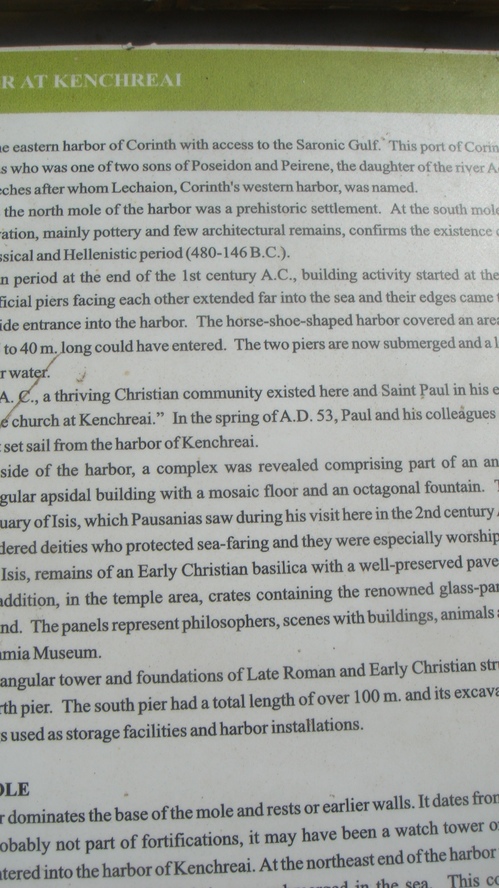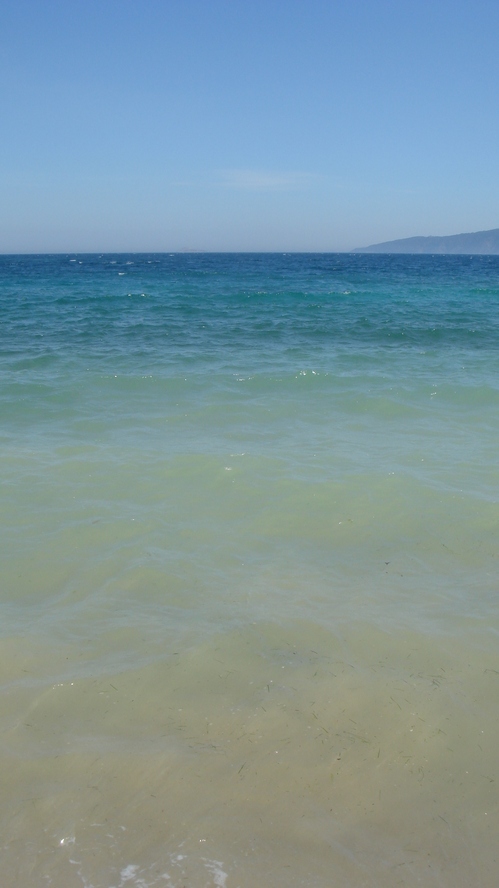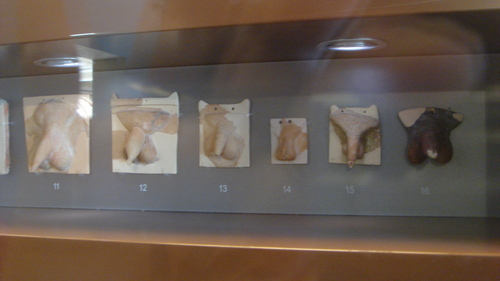O.K. so it just looks like another ocean shot. What it actually is is the harbor of Cenchreae which was the eastern seaport for Corinth. This locale is important because it is the home of the first Christian person to be called a deacon, namely Phoebe who was also Paul’s host and patron while he was there, and apparently also the bearer and reader of the letter to the Romans to the Christians in Rome (see Rom. 16.1-4 and my commentary on Romans).
Commercially speaking this port was quite important. Here is where the slaves (Jewish and otherwise) would be off loaded from the Eastern part of the Empire and taken to the slave market in Corinth. Corinth was something of a boomtown in the middle of the first century when Paul was there, and had supplanted Athens as the capital or first city of the province Achaia. It is here where Nero came to read his poetry and won the contest at the Isthmian games (what a surprise), and it was here where tourists would come and stay for those games, most of them needing to buy or rent a tent from someone like Paul to stay during those two or so weeks every two years. The Isthmian games stood only behind the games at Olympia in popularity. There is a sign at Cenchreae which reads as follows….


